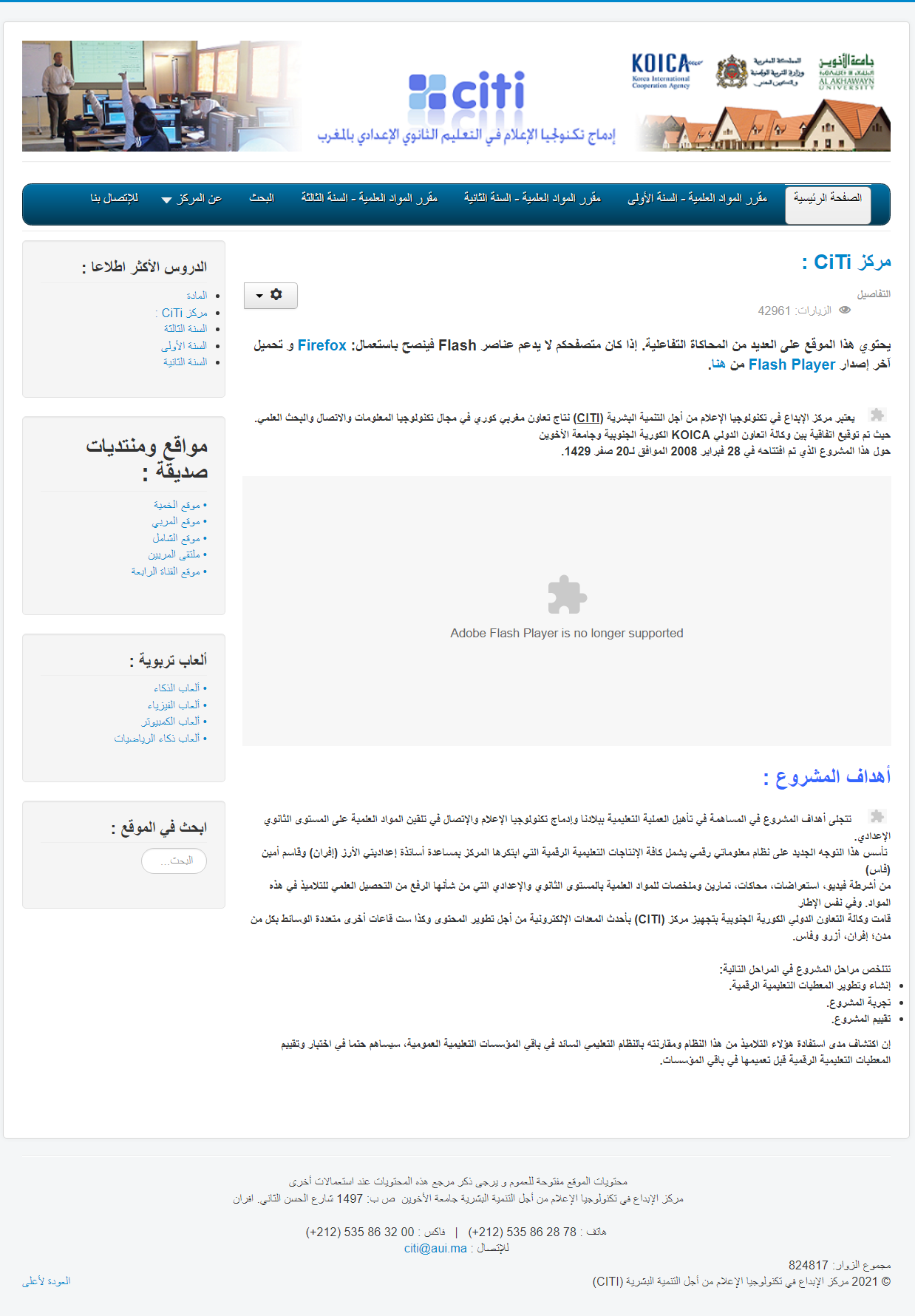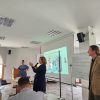Project name: CITI
Period: 2007-2009
Context and objectives:
CITI project objective was to foster ICT expertise, by bringing ITC usage into Middle School classrooms in Morocco. The foundation of the work is a joint project between the Center for IT Innovation (CITI) for Human Development laboratory at Al Akhawayn University in Ifrane (AUI), the Korean International Cooperation Agency (KOICA), the project “Generalization of New Information Technologies for Education” (GENIE) of the Moroccan Ministry of Education (DEN), and two pilot schools in Ifrane and Fez. The project agreement was signed in July 2006 and implemented from 2007 to 2009.
The specific choice of focus for this project has been motivated by the very low level of exposure of Moroccan students and most instructors to IT tools in their science secondary education, the low performance of these students in scientific subjects in international ranking as compared to peers of the same educational level, the high dropout rate at the secondary and high school levels, and the national goal of increasing the number of graduates with IT skills to drive industrial development in certain key technological areas. Through this project, we explored how IT-based education could improve both motivation and performance of students in middle schools.
Within the objectives of this project, CITI developed a number of math and science resources and tools for use by teachers and students in middle schools. This development, which was carried out with close participation of middle school teachers, was based on identifying and implementing best practices from IT-based education literature, and on a high degree of involvement of middle school teachers in content design and development.
The teams of teachers from the pilot schools, along with the pedagogic inspectors, have worked to develop content for courses using Microsoft Word and/or Powerpoint format conforming to the official educational programs for the three years of middle school. The content has been divided among the teachers from the different pilot schools.
The content defined by the teams is validated by the inspectors and AUI researchers and submitted to AUI software engineers and technicians. The task of the university area experts was to revise and convert the content to an adequate format as well as to develop simulations corresponding to the different chapters.
The developed material was returned to the teachers than to the National Center for Innovative Pedagogy (CNIPE), who validated the developed materials. The AUI team then placed on line the different materials developed, through a distance education platform (http://citi.aui.ma/). This website offers a variety of tools and applications that help students and teachers use ICT in the learning process. These include whiteboard, class lectures, interactive exercises, online quizzes, simulations, video clips, virtual labs, educational podcasts, forums etc. The implementation/experimentation phase in 10 pilot schools was followed by AUI researchers. This experiment was the first of its kind in Morocco.






